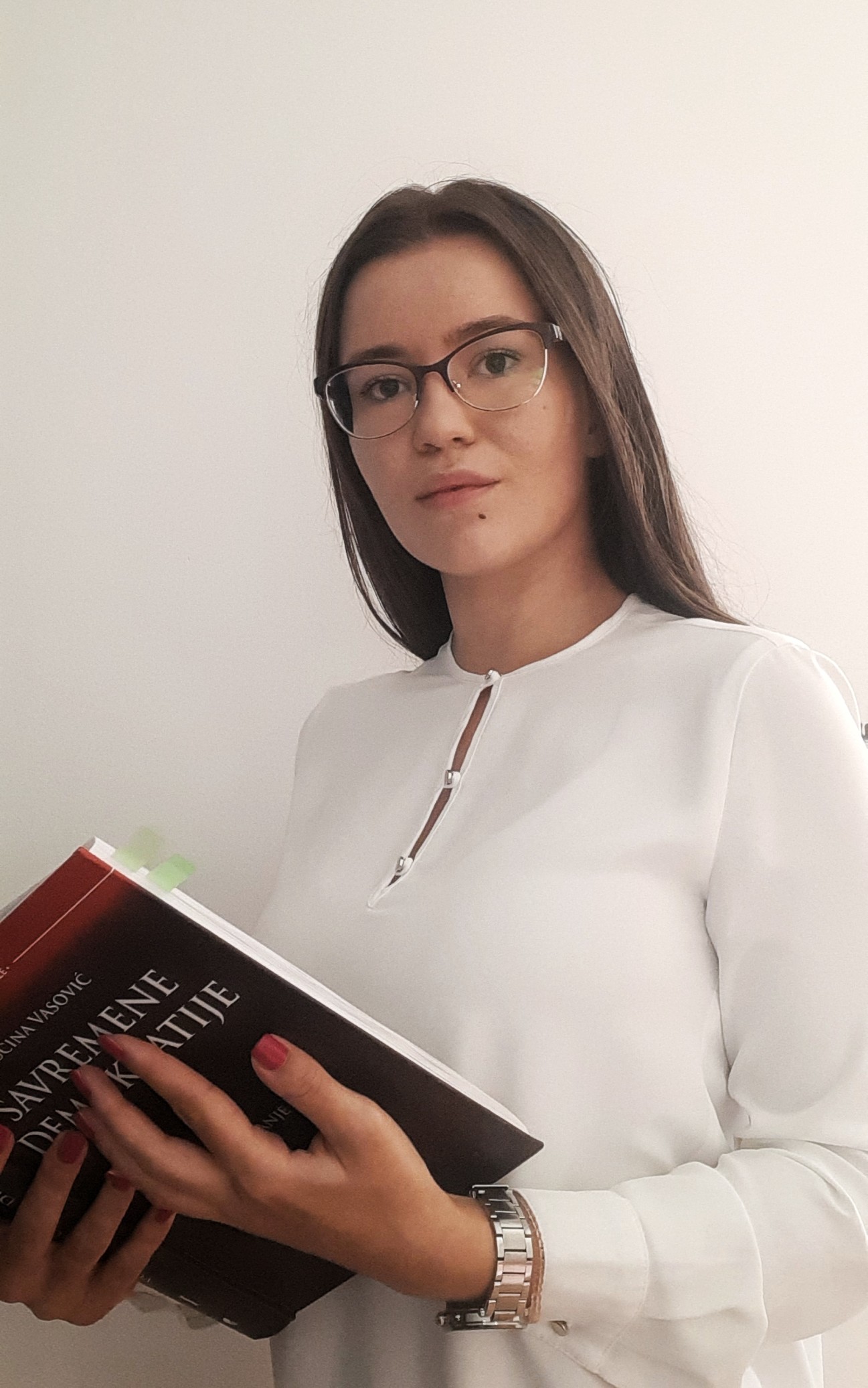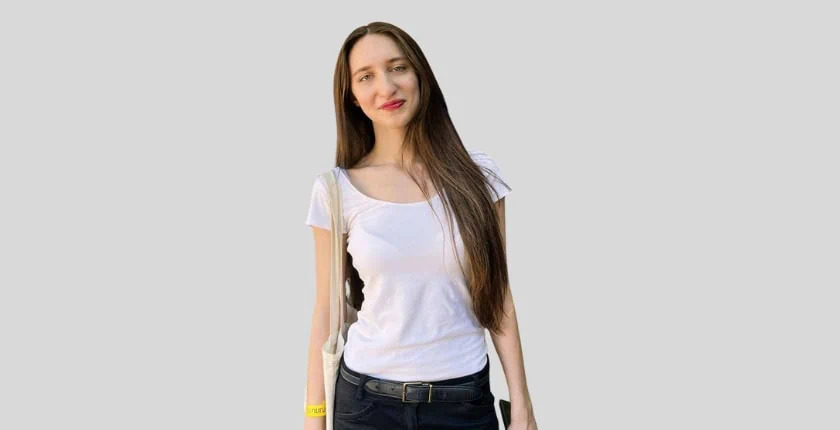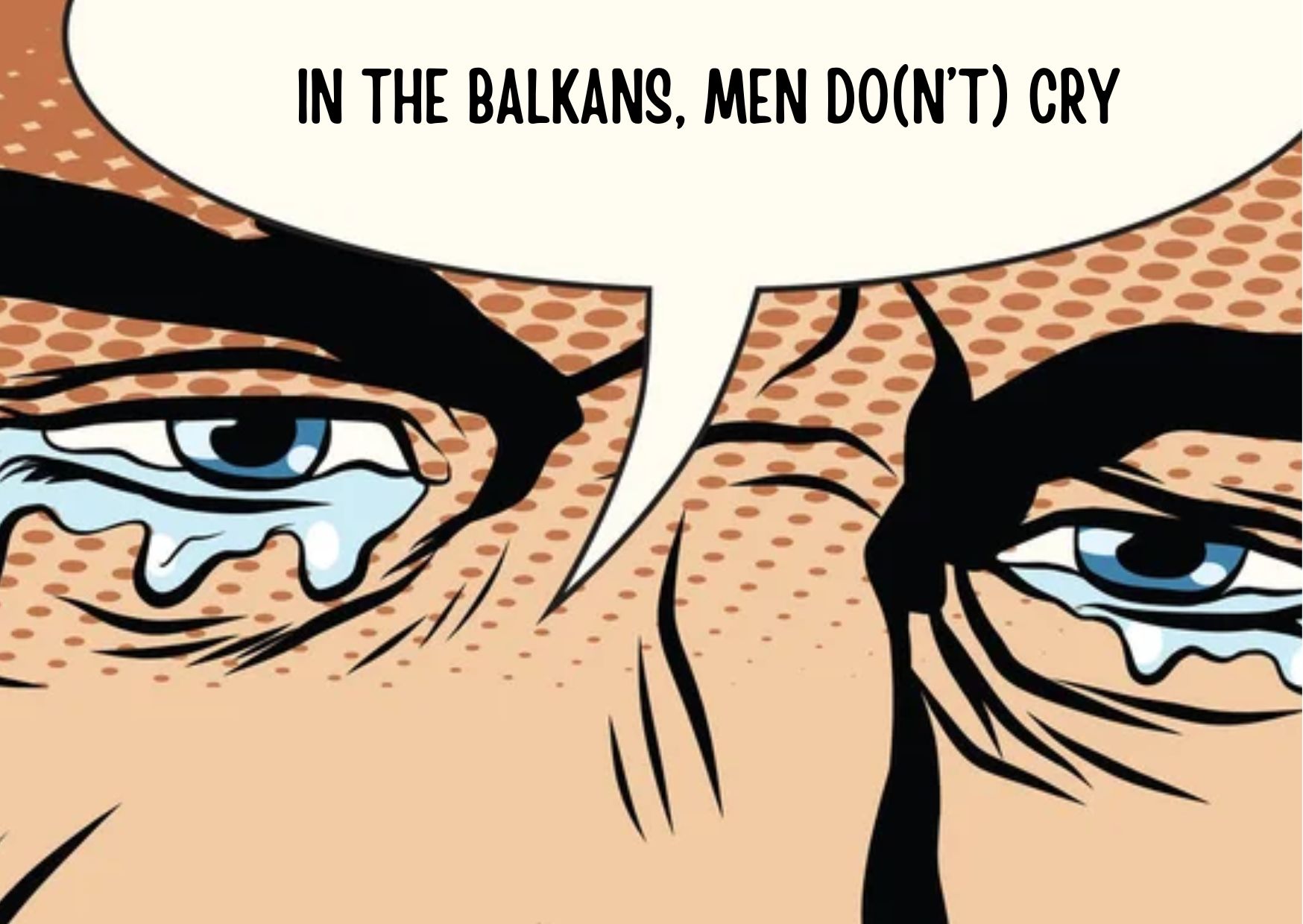Youth Activism and political participation in Serbia
Young people need a safe public space in which they can step forward without fear, support from the education system through strengthening political culture, but also a better connection of young politicians with the target group so that they can adequately represent them when they are in office.
-1660848258.jpg)
Photo credit: Pexels / Markus Spiske
Hey adults, we’ll take it from here, it was written on one of the banners at the Youth Climate Strike in 2019. This message is also what unites Greta Thunberg, Joshua Wong, and Ivana Jovanović. In different parts of the world and in different socio-political circumstances, the three of them believe that young people have the power to make change possible. While Greta directly criticized from Glasgow, saying that "while the world is literally burning, the powerful keep blah, blah, blah talking", Joshua is fighting for democracy in Hong Kong, and Ivana is committed to fighting for human rights and dealing with the past in the Western Balkans.
Youth Activism in Serbia
Ivana is a student at the Faculty of Political Science in Belgrade and has been dedicated to peace activism, the fight for human rights, and dealing with the past in the Western Balkans for six years. During that time, she was an intern at the Humanitarian Law Center, did analysis and research at the Center for Applied NonViolent Actions and Strategies (CANVAS), was an activist of the Youth Initiative for Human Rights, volunteered at Pride, and currently works at the Media Diversity Institute Western Balkans. According to her, non-formal education outside of school and faculty through numerous programs and training related to human rights, transitional justice, peacebuilding in the Balkans, and youth policy, was of crucial importance for her orientation.
"I have always loved history very much and in high school, I was especially interested in what is happening in the region, so everything revolves around some narratives. I simply wondered who these people are, who are these Croatians and Albanians. At the end of high school, I happened to see an open invitation to the Youth Initiative for Human Rights school on the topic of dealing with the past in Vukovar. I didn't know anything about it then, but I saw it as an opportunity to learn and to finally meet "those" Croatians. That experience opened my eyes. I remember thinking - young people are the future", says Ivana.
But did her peers think so too? When she returned from Vukovar, she knew what she wanted to do, but she was afraid of the reaction of the environment, which she points out as one of the key obstacles to the greater involvement of young people.
"When I started with activism, I started with an open heart and naively. At home, I always felt safe to debate freely, so I thought I would be able to do the same with other people. The first negative experience after leaving the safe zone was recording the show Perspective. Young people from our Faculty of Political Science and the Faculty of Law participated, and one of the topics was dealing with the past. At the end of the show, three young men were waiting for me in front and said that because of people like me Serbia is failing. Although I remember it with a smile now, I felt fear at that moment. That was the first time I asked myself, are they just a noisy minority or actually a majority", she recalls.
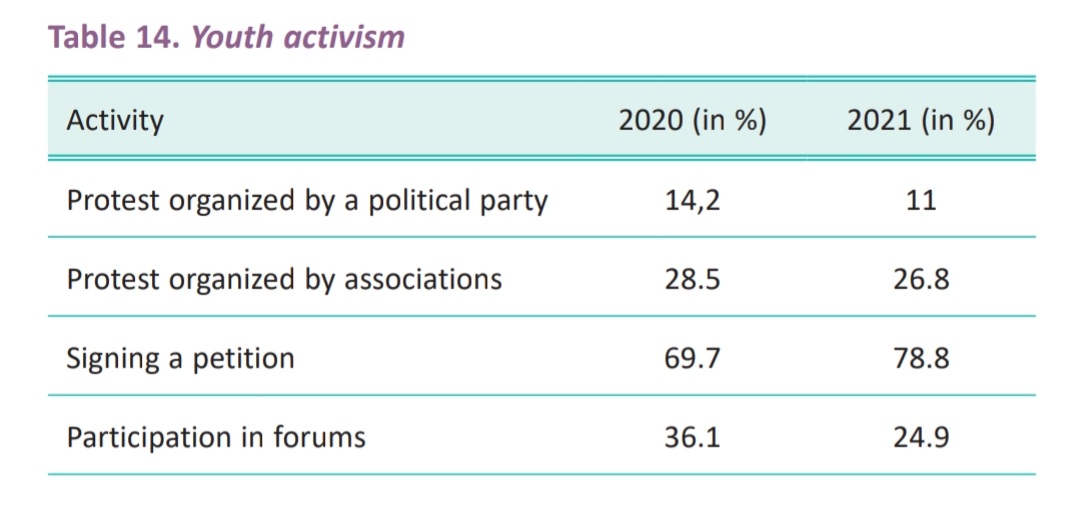
Photo credit: Screenshot / Alternative report on the position and needs of youth in Serbia 2021 (National Youth Council of Serbia)
Description of the photo: Percentage of young people involved in activism in Serbia
And why is that so? Political culture in Serbia, as a necessary precondition for activism, is at an equally low level common to almost all post-communist countries, shows professor Miloš Bešić in his research article "Civic Political Culture. Serbia in Europe." As civic political culture can not exist by itself, it is an integral part of a broader value pattern, in a country where socialism ruled for 45 years, one of the basic obstacles to the emergence and development of political culture today is the cultural and political heritage of this period.
"If someone wants to be an active citizen, he must understand how institutions function, what a people's initiative is, what a referendum is, what a protest means, and how it is organized... It is a political culture for me. First of all, these concepts must be clear, and where do we learn that? Our big problem is our education system, which not only does not motivate us to think critically, but on the contrary. If you don't have a critical opinion, how can you think about activism?", Ivana says.
Lack of information is directly related to the level of political culture. The choice is especially limited for young people living in small places. Also, although there are plenty of informal programs organized by NGO’s, it all reaches a small circle of people.
"If we don't have a safe space to talk, if we are uninformed and live in fear, it is easy to manipulate people in such a condition. It is up to us young people to finally change that", our interviewee points out.
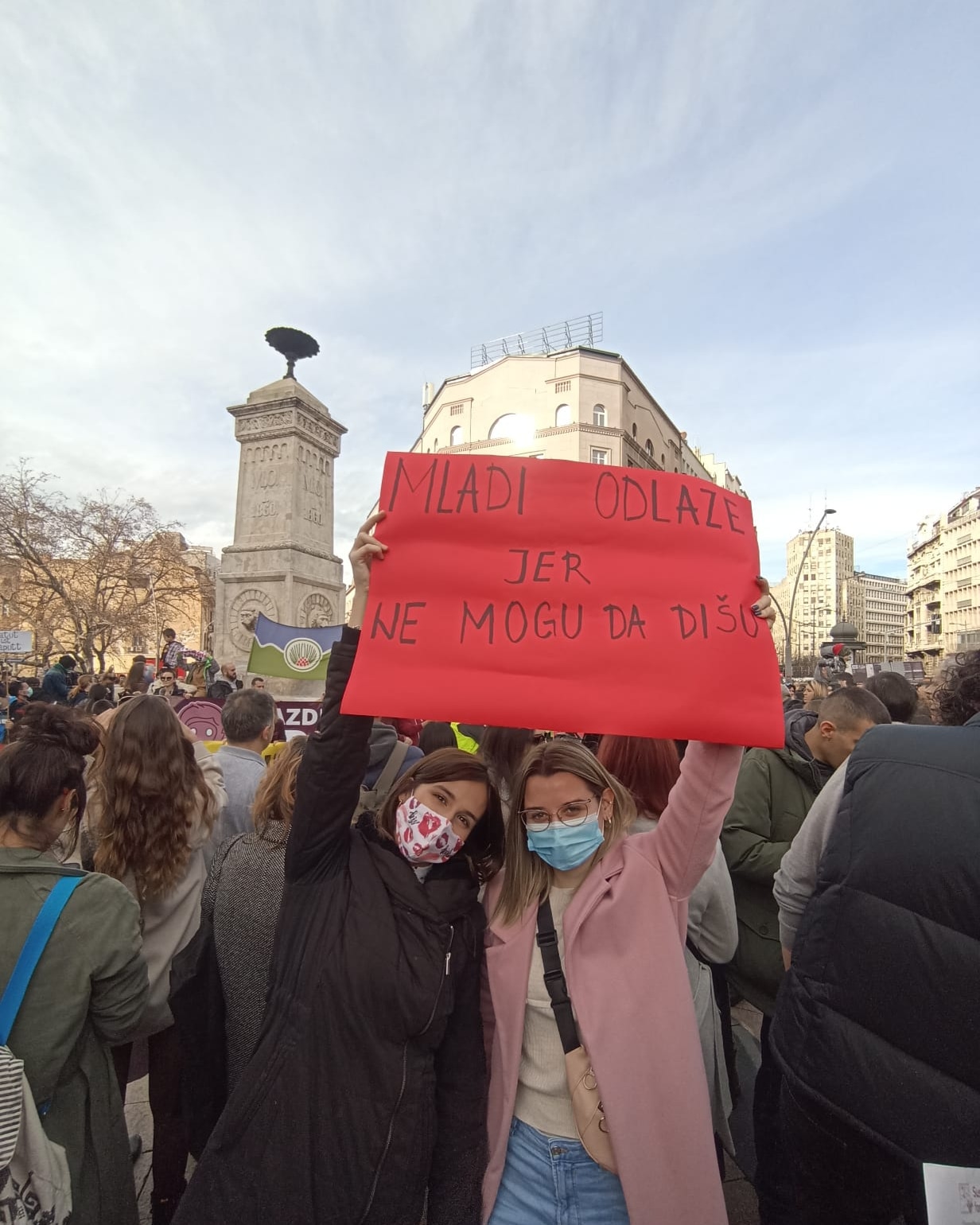
Photo credit: Personal archive
Description of the photo: "Young people leave because they cannot breathe. And young people cannot breathe because of polluted air and environmental problems, but also because of the nationalism that suffocates us, the constant targeting of "the other" and because of the values that have been imposed on us."
Young people in developed western countries
And where do they learn about this in the West? Western developed countries can be proud of the far higher values of civic political culture. Which is manifested in the United States through mass actions such as Black Lives Matter, United We Dream (a movement dedicated to minority rights and the fight against anti-immigration policy), Youth Climate Strike in which the driving force was young, or in protest walks in which about a million students across the country participated with a demand to end the gun violence epidemic in schools after a shooting at a school in Florida in 2018. For example, thanks to their organization, engagement, and mobilizing voters, young voters sent the first "millennial" Jon Ossoff to Congress, which makes him the youngest American senator since the current president Biden was elected in 1973 at the age of 30. The key point here is that young people are not alone in this. The system encourages them to be a reservoir of progressive ideas. An interesting example is several high schools in Virginia that in 2020 enabled students to be justifiably absent from school one day in the school year in order to participate in civic activities, such as voter registration or organizing a social event.
In Serbia, a larger number of young MPs and young councilors in the latest local assemblies of municipalities and cities were supposed to bring affirmation of political participation of young people, however, as Miljana Pejić from the National Youth Council of Serbia (KOMS) says, it does not seem that young people are significantly encouraged to political activism and participation.
"The number of young people in the National Assembly is important given that young people make up almost 17% of the population, and were represented by 1.5%. However, the number of young people in the Assembly is only one of the preconditions for their active role and it is necessary to work on better connection of young MPs with the target group they should represent. Young MPs must be empowered to represent the interests of young people and try to overcome particular party interests", says Pejić.
-1660849626.png)
Photo credit: Screenshot / Alternative report on the position and needs of youth in Serbia 2021 (National Youth Council of Serbia)
KOMS believes that certain institutional changes, such as the establishment of a parliamentary committee on youth issues, the formation of an informal group within the National Assembly - the youth caucus and the establishment of a continuous dialogue between MPs and youth associations, could be a good incentive for a fundamental change. This is what can be achieved within the existing electoral system, although the election of a specific person, as young people chose Ossoff in the US, instead of the entire party list, as in our country, would certainly affect the sense of responsibility of elected representatives and the need to continuously seeks support from the electorate.
"Young people are not as predictable the electorate as some other age categories, and that is why politicians have no incentive to address them. In order to choose the priorities of young people and to adjust the communication to them, a lot of resources and a different approach are needed instead of the usual party campaigns, so it is a risky investment for the parties for an uncertain result", Pejić believes.
And what do young people say about this? Our activist Ivana claims that young people who are in the Assembly do not represent her interests.
"Young people who are in office are there thanks to their party, and not to young people who elected them as representatives, because we have an electoral system that allows that, which just means that they will mostly represent their party and its program. It is certainly not motivating for young people to get involved in the process", she says.
If we keep all this in mind, can young people be blamed for passivity?
"For those who insist on attributing all the blame for passivity to young people and who constantly demand something from us, I have a question - what do you offer us? No one has yet asked the young people what we want", Ivana points out.
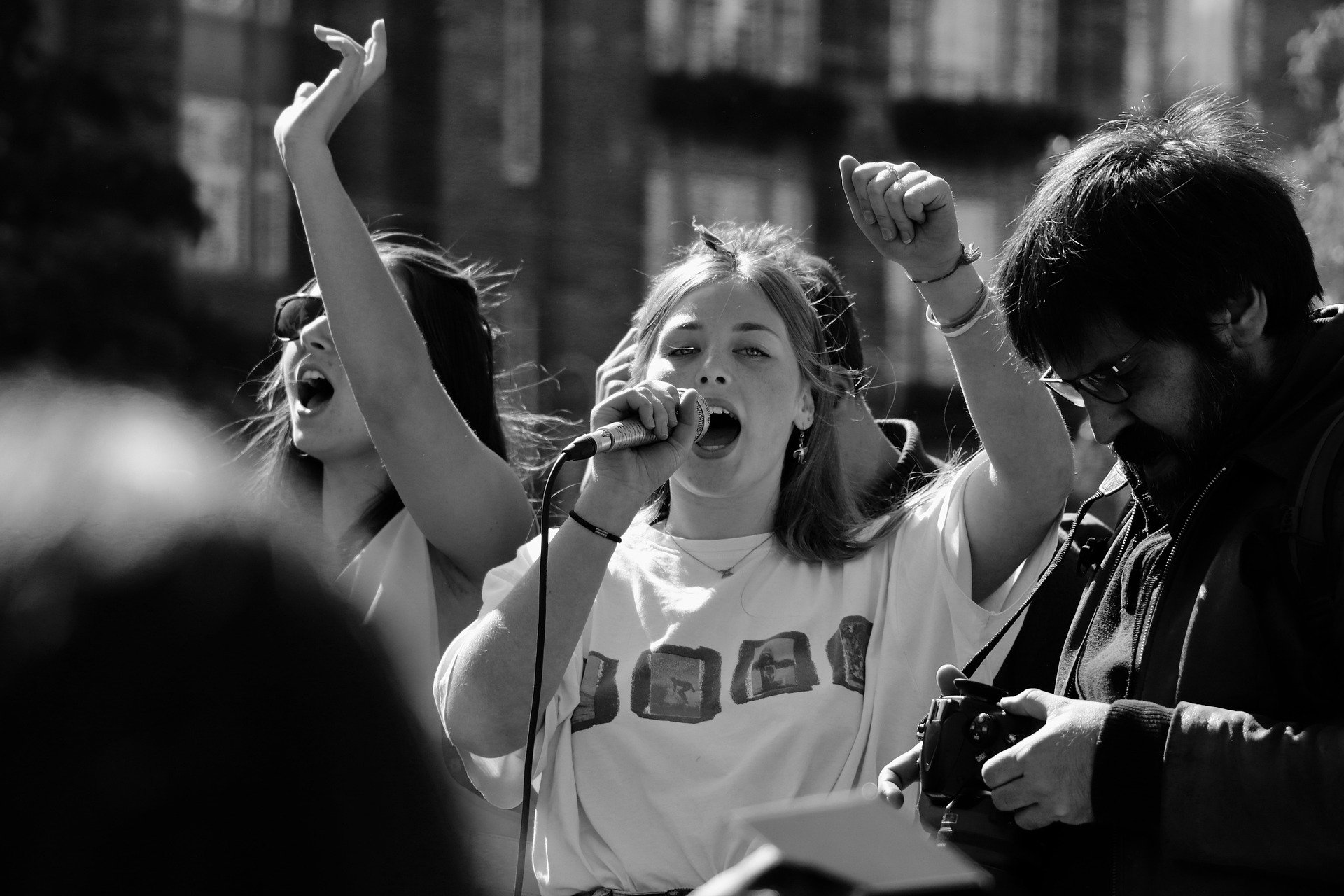
Photo credit: Pixabay / WFlore
Utopia or Not?
What is the future of youth activism in Serbia? What is certain is that we are getting closer to our peers abroad in the sphere of online activism. Online petitions are actually the most common type of youth activism in Serbia, and by organized sending emails, young people blocked the network of the Ministry of Education this year as a form of pressure. During the last presidential election in the United States, a group of young people bought almost all tickets online for one Trump rally as part of the campaign. Thus, only a few sympathizers appeared at the rally in the end. While young pro-democracy activists in Hong Kong have developed a special mobile application with the help of which they can check which shops and restaurants are marked as yellow (pro-democratic) or blue (pro-government). So they found a way to fight for democracy with their wallets. But is that enough? For these examples, Ivana Jovanović says that they tell us at least three things.
"We need humor, something that will motivate young people, because people are tired. Then, on the example from Hong Kong, we see that they understand how the system works, how parties are financed. In order to achieve that, we have to work on raising our political culture. Last but not least, online petitions are important, but it is the least important. The key is how to get those 100.000 people to do something. Young people are informed on social networks, so it is natural for them to organize themselves online, but it can not stay that way", she warns.
Therefore, young people need a safe public space in which they can step forward without fear, support from the education system through strengthening political culture, but also a better connection of young politicians with the target group so that they can adequately represent them when they are in office. With this, there is no reason for youth activism to remain at the level of utopia, because as Ivana says, "there are so many wonderful and smart people across the region who are ready to be the driving force of society, and we just need to let go of all our potentials".
-1660849942.jpg)
Photo credit: Pexels / N. Jilderda
Key words: youth activism, peace activism, political participation, serbia, western balkans, civic political culture, Ivana Jovanović, Youth Activism in Serbia, dealing with the past in the Western Balkans
Mentor: Assistant professor Marko Nedeljković, Department of Journalism and Communication Studies, Faculty of Political Sciences - University of Belgrade
-1660848346.jpg)
